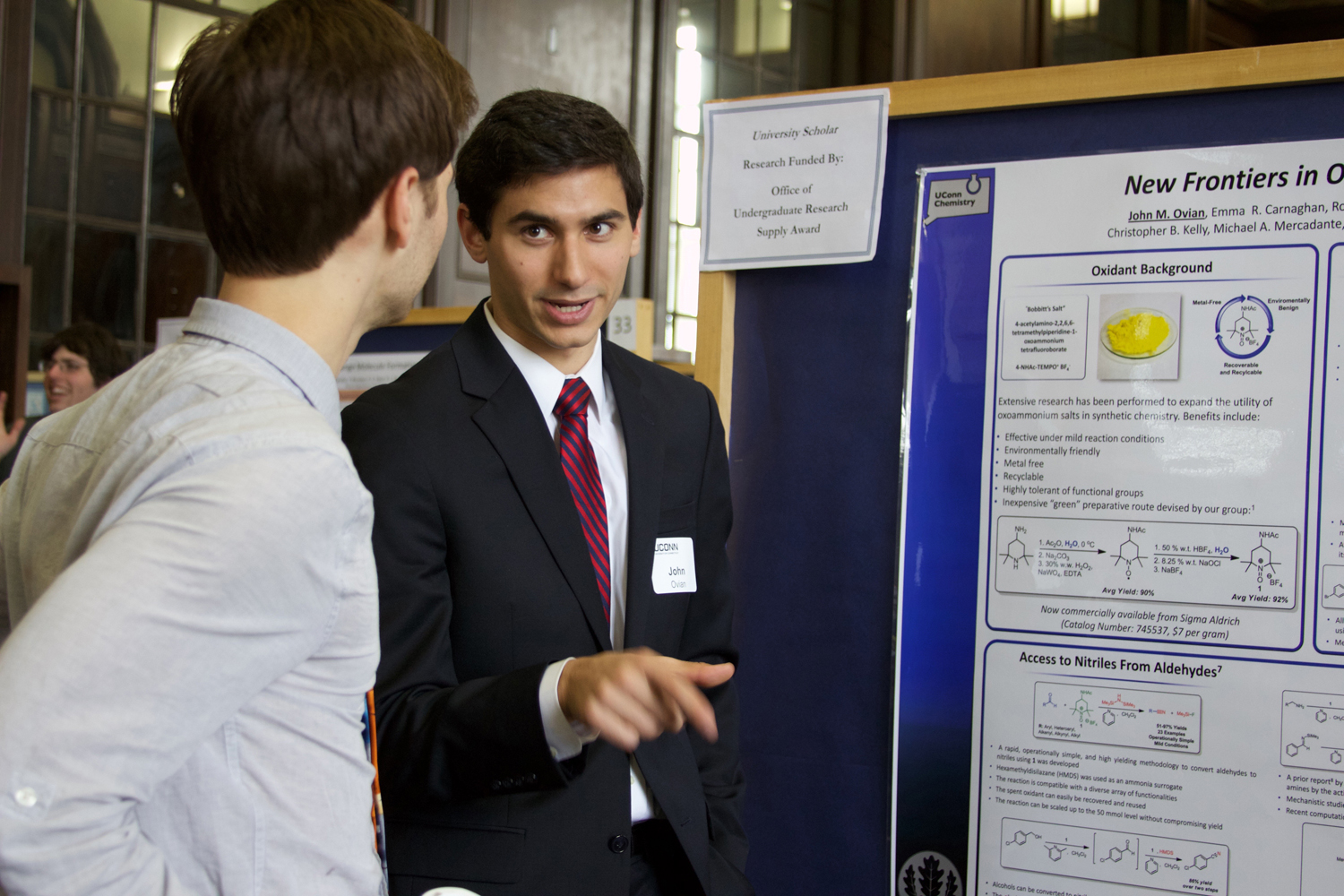A record 272 undergraduate presenters featured in this year’s Frontiers in Undergraduate Research Poster Exhibition April 8-9. The event, which is sponsored by the Office of Undergraduate Research, is the largest showcase of undergraduate student research, scholarship, and creative projects at UConn.
I wasn’t given some easy project that had already been done … I was shown and trained to do real research from the get-go. — John Ovian '17 (CLAS)
Frontiers is a celebration of scholarship, said Caroline McGuire, director of the Office of Undergraduate Research. A diverse array of students from all disciplines at UConn were represented at the event, including students in fine arts, the sciences, and the humanities.
“Sharing their research caps off the whole research cycle, from designing a study, to executing it, analyzing the data, and then actually putting it out there and seeing how that helps us move knowledge forward,” McGuire said.
Over the course of two days, the Frontiers poster sessions give students the opportunity to present the results of their research or scholarship to students, faculty, and staff, but also to prospective UConn freshmen and their parents at the spring Open House for admitted students.
“It’s great practice for students thinking about how to communicate a study they’ve been deeply involved in, that they know at a very technical level, to a more general audience,” said McGuire.
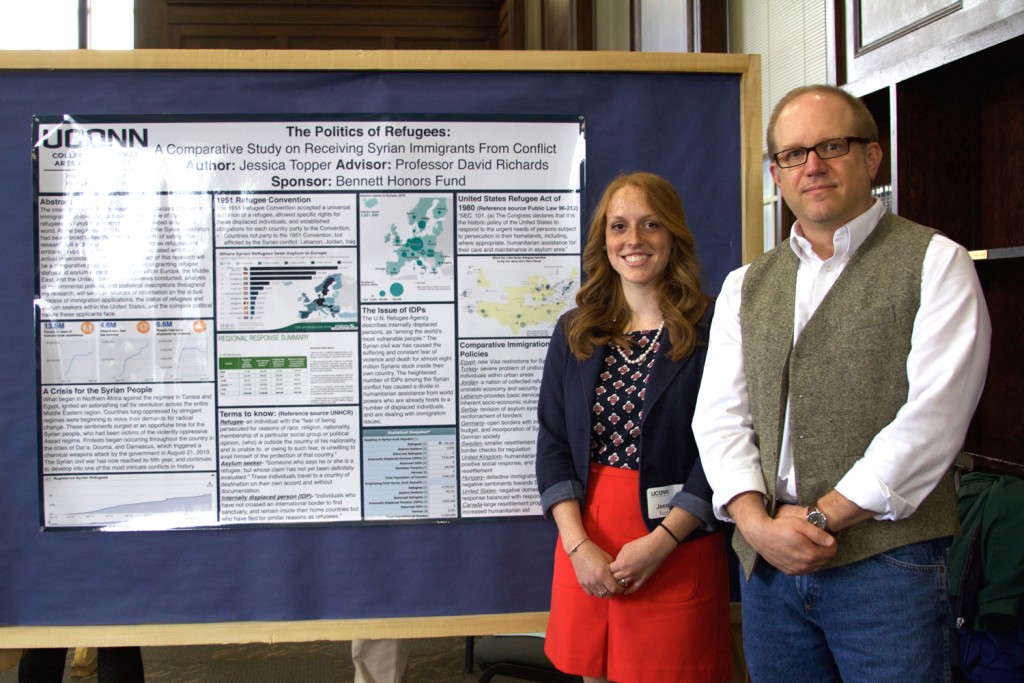
Jessica Topper, a senior international relations major who worked with associate professor of political science David Richards, presented her project titled “The Politics of Refugees: A Comparative Study on Receiving Syrian Immigrants from Conflict.”
“I researched the Assad regime in Syria, how the humanitarian crisis has affected Syria itself, and then the migration patterns of these refugees,” said Topper. “A big part of [my research] is seeing the effects of these refugees, whether it be political, social, or economic, in the countries they were settling.”
During the fall semester, Topper interned at the International Institute of Connecticut, a refugee resettlement program, where she gained access to interviews and materials related to the Syrian refugee crisis. She then conducted a series of her own interviews.
She said interviewing was one of the challenges of her project, as she had never done it before.
Other challenges for Topper included crafting unbiased and professional research questions, working with the University’s Institutional Review Board, and writing a literary evaluation of all her research and analysis.
Topper is now choosing between graduate programs to pursue in the fall.
“[This research is] something that can follow her to graduate school,” said Richards. “This is something that people are going to be doing dissertations on for a long time.”
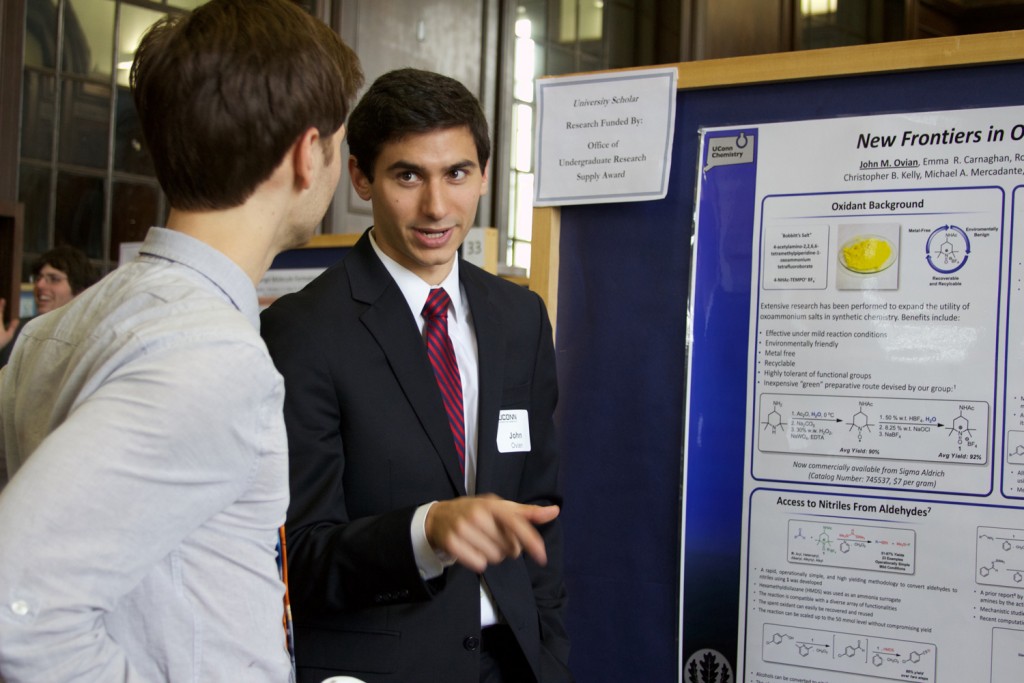
Junior chemistry major John Ovian has been working in the lab of associate professor of chemistry Nicholas Leadbeater since he was a freshman.
“He took me in,” said Ovian. “From there I was immediately involved in this research. I wasn’t given some easy project that had already been done … I was shown and trained to do real research from the get-go.”
Since coming to UConn, Ovian has been interested in doing eco-friendly chemistry. He works with a material called Bobbitt’s salt, an organic-based oxidant that is better for the environment than metal oxidants, in part because it is recoverable and recyclable in reactions.
The idea of the project, according to Ovian, is to figure out how to use Bobbitt’s salt in an oxidation reaction that will be efficient, scalable, and also environmentally friendly, and to create new protocols for this kind of reaction.
“I think that one of the best skills that [Professor Leadbeater] has is he is able to communicate his research to a wide audience … and he writes for an objective audience as well,” said Ovian, adding that he tries to emulate those skills in his own academic career.
Ovian has already published several of his research studies, and wants to pursue a career in research.
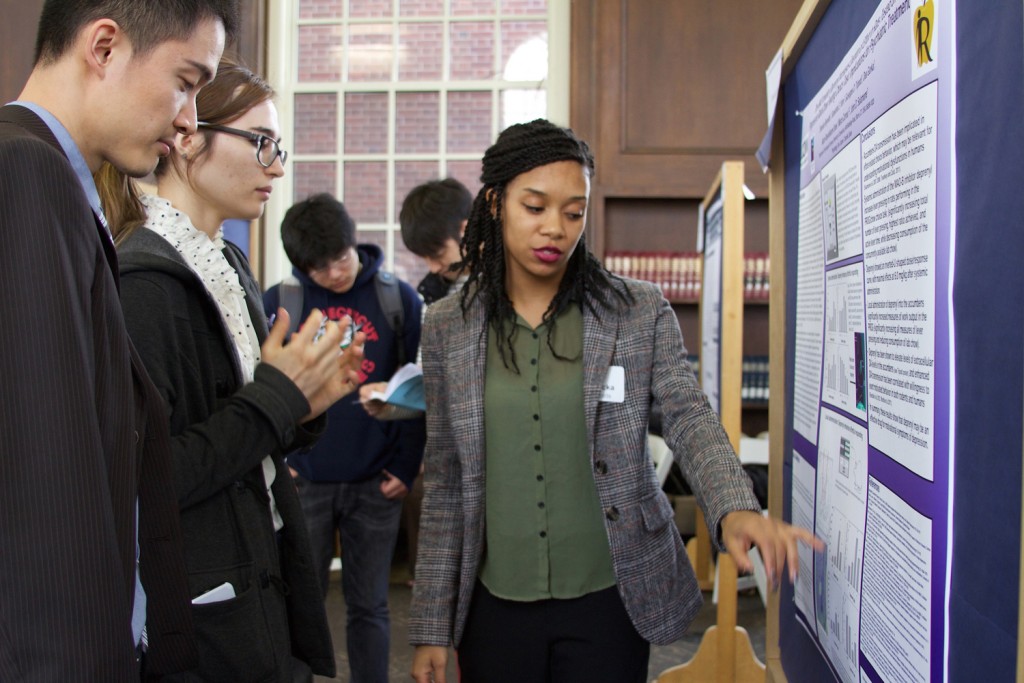
Shanicka Reynolds, a senior psychological sciences major, has worked in the lab of professor of psychological sciences John Salamone for a year and a half, looking at the drug Deprenyl as a treatment for depression.
Deprenyl is already prescribed as a treatment for Parkinson’s Disease because it affects the brain neurotransmitter dopamine, but Reynolds’ work shows that it may be also useful as an antidepressant.
“We’re looking specifically at motivation symptoms, because there are many different aspects of depression that people can experience,” Reynolds explained. “Dopamine is closely correlated with the motivation aspect.”
Reynolds got involved in this research after studying abroad in Spain, where Salamone taught a class about drugs and behavior.
She said the research experience has taught her a lot about dedication: “I’ve learned how much time and hard work goes into these experiments. There are some days when we’re there from 8 a.m. to 10 p.m.”
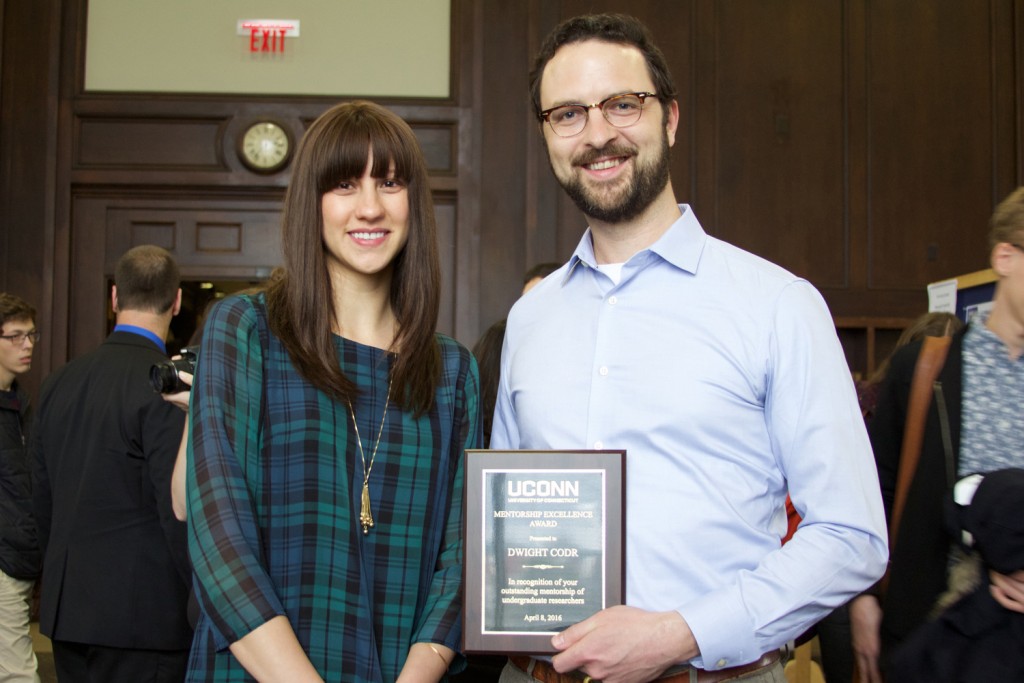
Senior English major Giorgina Paiella’s project Woman a Machine: Gender, Automaton, and Created Beings, has spanned almost her entire career at UConn. It focuses on the intersection of female created beings and the history of the human female body, women’s rights, and gender representation.
“Automata are mechanized objects that are often made in a human form,” said Paiella. “The ones I found most interesting were the female ones, because of the rich history of gender behind it.”
The history of female created beings, like automata, ranges from the 18th and 19th centuries to modern representations of artificial intelligence in the recent films Ex Machina and Her.
As an extension of her University Scholar project, Paiella curated and produced an exhibition in the Thomas J. Dodd Research Center that will run until the end of April. Since these created beings are so visually interesting and have such a fascinating history, she said, her hope was that other people could view them for themselves.
At the conclusion of Friday’s poster exhibition, students and faculty gathered for a reception where the second annual Office of Undergraduate Research Mentorship Excellence Awards were announced.
Award winners included Sam Yohn, a Ph.D. student in behavioral neuroscience, presented by senior psychological sciences major Giuseppe Tripodi; Etan Markus, professor of psychological sciences, presented by senior psychological sciences major Stephanie Vu; and Paiella’s advisor, professor of English Dwight Codr.
Paiella said that taking Codr’s classes, beginning her freshman year, shaped her interest in close reading of literature.
“[Professor Codr] influenced my reading of texts a lot,” said Paiella. “He really challenges students to read very thoroughly and realize all sorts of inter-textual relationships.”
